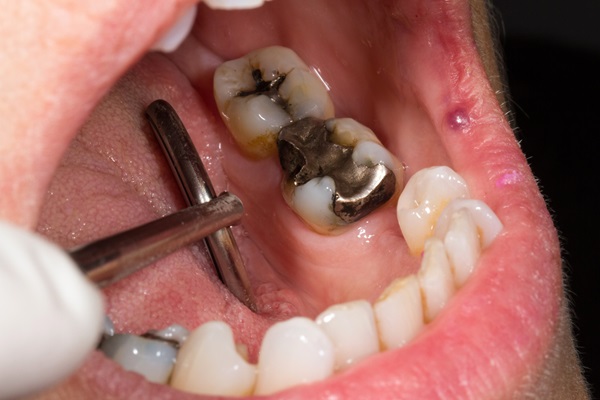Can I Get Dental Implants If I Have Gum Disease?

Want dental implants to replace your missing teeth but are not sure if you are indeed a candidate? One of the criteria for having one or more implants placed in your mouth is being free of any gum disease. There are four levels of gum disease, and if you are diagnosed with any, then you will need to undergo gum disease treatment before being approved to undergo the implant placement process.
About dental implants
Want detailed information about dental implants so you can decide whether this replacement option is right for you? This is a smart idea. Implants are popular because they closely resemble natural teeth. An implant is surgically inserted into the jawbone, allowing it to act like a natural tooth’s root. An implant is custom-designed for every patient, allowing it to blend in with the rest of the teeth. Implants allow for easier oral care, easier speaking, easier eating and overall comfort, which is why implants are a popular tooth replacement option.
About gum disease
Gum disease is caused when plaque is not removed from the teeth in a timely manner. When plaque is allowed to build up, it begins to negatively affect the gums and teeth and even the jawbone. When not addressed in its beginning stages, gum disease will only worsen. It will eventually cause pockets to develop in between the gums and teeth, which will begin to fill up with bacteria. This bacteria is not only harmful to the mouth, but it can also be harmful to the entire body.
Can patients get dental implants if gum disease is present?
No. If gum disease is present, dental patients will first need to have the disease treated before they can have implants placed in their mouths. The dental implant placement process requires a dental professional to surgically insert an implant directly into a patient's jawbone. This allows the implant to look just like a natural tooth, which is exactly what patients want. But if gum disease is present, the chances of successful implant placement are reduced.
Gum disease does not support a healthy mouth. When gum disease is present, it will eventually lead to various levels of gum recession, as well as various degrees of bone loss. Patients who are currently experiencing these problems are much less likely to experience success for implant placement, as the implant will simply not be supported by diseased gums and an inadequate amount of jawbone.
Ready to address your missing teeth problem?
Are dental implants your chosen tooth replacement option? If you have determined that implants are the right choice for you, then today is the day to get started on the process! One of the first steps is making sure that your mouth is free of gum disease. If you are diagnosed with gum disease, then you will need to undergo treatment in order to remove the disease, to make your mouth healthy enough to start inserting the implants.
Are you considering dental implants in the Babylon area? Get more information at https://babylonsmiles.com.
Check out what others are saying about our services on Yelp: Read our Yelp reviews.
Recent Posts
Dental implants are a great way to replace multiple missing teeth. A dental bridge is also a solution for multiple teeth replacement in many cases as well. By learning more about the pros and cons of each option, it will help you decide which treatment option is right for you. Missing teeth create a cosmetic, functional…
When a patient has dental implants, follow-up visits are important. Many patients need to have replacement teeth for a variety of reasons. You may have gotten them because you lost several teeth due to a traumatic accident, or you may have been on medication that caused your teeth to deteriorate. Regardless of how you lost your…
If you are currently considering getting dental implants, you might find yourself wondering how long these prosthetics last. Dental implants are one of the most popular permanent tooth replacement options available and they can last an entire lifetime if you practice good oral hygiene.Implants have been used in dentistry for decades and a lot of…
Dental implants are perhaps the most outstanding technological advancement in the world of dentistry. After their introduction in the 1950s, implants have gone on to transform the delivery of dental care for people with lost or missing teeth. They are a bit more expensive than other dental replacement options, so it is important to first…


